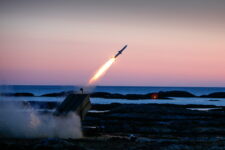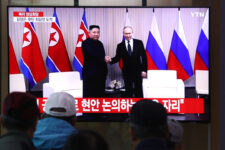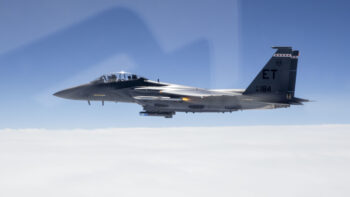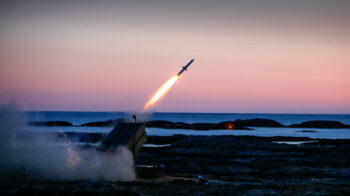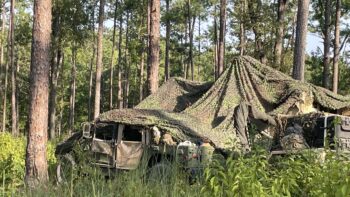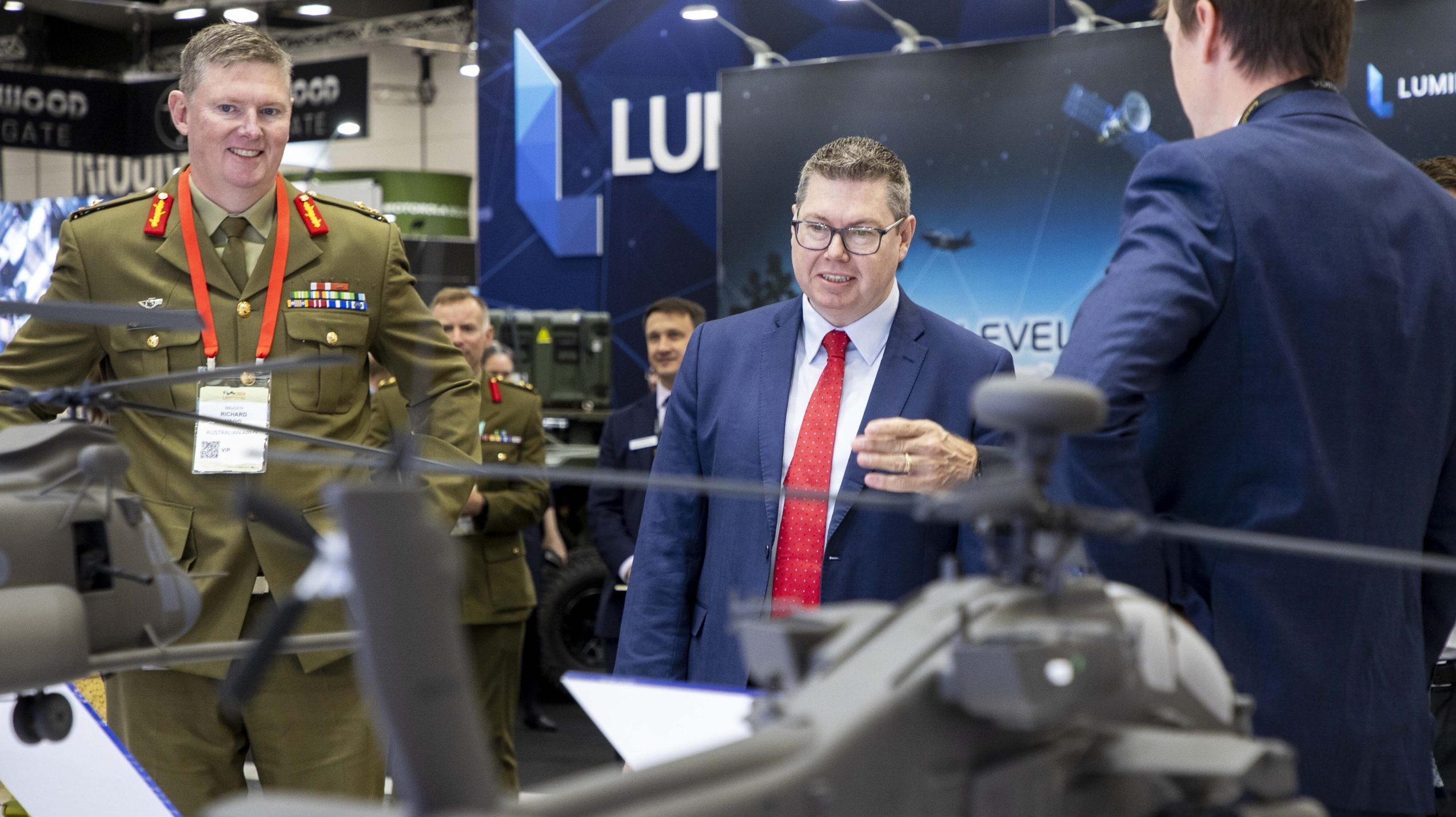
Pat Conroy, Australian minister for defense industry and capability delivery, and Maj. Gen. Richard Vagg, the Army’s head of land capability at the 2024 Land Forces conference in Melbourne. (ADF Cpl. Janet Pan)
WASHINGTON — Australia is poised to award a contract to produce 155mm shells domestically in the next few weeks, defense acquisition minister Pat Conroy told Breaking Defense today.
“All I can say is an announcement will be made shortly. So look out in the next little while for that announcement,” Conroy said in an interview during his visit to meet with American defense officials. Pressed for more specificity, Conroy said the timetable is within “weeks.”
Currently, Australia imports its 155mm shells from a South African subsidiary of Rheinmetall. While there is domestic production via a joint venture between a local company, NIOA, and Rheinmetall, those shells are only for export to Germany.
Few details have been made public about the pending 155mm contract from the MoD, including dollar amounts and quantity. Conroy confirmed that the NIOA-Rheinmetall team pitched on the deal, with French firm Thales also competing. However, the minister indicated that there is a third, currently unidentified, competitor as well.
“There was a — I won’t get into it — but there was a third option that was approached as well,” he told Breaking Defense.
Since the start of the Ukraine war, 155mm shells have become a hot commodity, with international demand far exceeding production. Speaking to Breaking Defense last week, Australian Army Maj. Gen. Richard Vagg, the service’s head of Land Capability, said building up domestic 155 production is vital for Australia’s defense.
“I think our government’s been really clear. You just look at the investment they put into guided weapons and explosive ordnance in Australia,” Vagg said on the sidelines of the AUSA conference. “I know we’re looking at 155; it’ll be crawl, walk, run. I don’t need to say it’s important — I think the government’s actions, the amount of money and effort they’ve invested in that area makes that pretty clear.”
Conroy is also hopeful that Australia can play a role in the broader supply chain globally — meaning that as Canberra invests in building up domestic production of munitions for its own use, it is building in “scalability beyond our domestic need” to be able to help supply international customers.
Overall, Australia has committed up to $21 billion AUD ($14.1 billion USD) for what it’s calling the Guided Weapons and Explosive Ordnance Enterprise (GWEO) over the next decade to increase its domestic munitions production.
Part of that includes a planned investment in solid rocket motor production. “I think that’s going to be a key focus, is to develop an Australian capability around solid rocket motors, recognizing that that’s sort of the pace setter for a lot of the global supply chains around missiles,” Conroy said.
Australia has a request for information out to industry for solid rocket motor production, so any competition is in the early stages, though some companies are already signaling their interest.
During Conroy’s visit to Washington, Canberra announced a plan to spend $7 billion AUD on SM-2 IIIC and SM-6 missiles for its Navy. While Conroy declined to go into quantities or delivery timelines due to “operational security reasons,” he said that part of his conversation with US Navy Secretary Carlos Del Toro during this trip was to firm up production plans, given concerns about availability of the weapons.
“I’ll just say that we’re comfortable with our nominated slots in the delivery [queue] and the US Navy have been very cooperative with us in terms of how we access inventory,” Conroy said. “So I’m satisfied that the delivery schedule meets our strategic needs, and the US Navy has been very supportive of working with them on understanding the capability.”
Colin Clark in Sydney contributed to this report.





